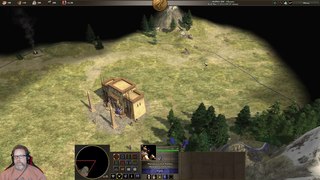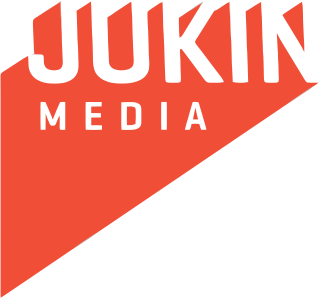
The second incarnation of Viacom Inc., was an American multinational mass media and entertainment conglomerate with interests primarily in film and television. It was established on December 31, 2005, as one of two companies which succeeded the original Viacom, alongside the second CBS Corporation. The controlling shareholder of both companies was National Amusements, a theater company headed by businessman Sumner Redstone. The split was structured so that the original Viacom changed its name to CBS Corporation and spun out its cable and film interests as a new Viacom.

The Orchard Enterprises NY, Inc., doing business as The Orchard, is an American music and entertainment company, specializing in media distribution. It is a subsidiary of Sony Music Entertainment, based in New York City. In 2019, the company sold off its film and television division, which was renamed 1091 Media.

The Harry Fox Agency (HFA) is a provider of rights management and collector and distributor of mechanical license fees on behalf of music publishers in the United States. HFA has over 48,000 music publishing clients and issues the largest number of licenses for physical and digital formats of music. It was founded in 1927 by the National Music Publishers Association. The agency was sold to performing rights organization SESAC in 2015, which was itself acquired by The Blackstone Group in 2017.

YouTube is an American online video sharing platform owned by Google. Accessible worldwide, it was launched on February 14, 2005, by Steve Chen, Chad Hurley, and Jawed Karim, three former employees of PayPal. Headquartered in San Bruno, California, United States, it is the second most visited website in the world, after Google Search. YouTube has more than 2.5 billion monthly users, who collectively watch more than one billion hours of videos every day. As of May 2019, videos were being uploaded to the platform at a rate of more than 500 hours of content per minute, and as of 2021, there were approximately 14 billion videos in total.

The National Music Publishers' Association (NMPA) is a trade association for the American music publishing industry. Founded in 1917, NMPA represents American music publishers and their songwriting partners. The NMPA’s mandate is to protect and advance the interests of music publishers and songwriters in matters relating to the domestic and global protection of music copyrights.

The Digital Millennium Copyright Act (DMCA) is a 1998 United States copyright law that implements two 1996 treaties of the World Intellectual Property Organization (WIPO). It criminalizes production and dissemination of technology, devices, or services intended to circumvent measures that control access to copyrighted works. It also criminalizes the act of circumventing an access control, whether or not there is actual infringement of copyright itself. In addition, the DMCA heightens the penalties for copyright infringement on the Internet. Passed on October 12, 1998, by a unanimous vote in the United States Senate and signed into law by President Bill Clinton on October 28, 1998, the DMCA amended Title 17 of the United States Code to extend the reach of copyright, while limiting the liability of the providers of online services for copyright infringement by their users.

A copyright troll is a party that enforces copyrights it owns for purposes of making money through strategic litigation, in a manner considered unduly aggressive or opportunistic, sometimes without producing or licensing the works it owns for paid distribution. Critics object to the activity because they believe it does not encourage the production of creative works, but instead makes money through the inequities and unintended consequences of high statutory damages provisions in copyright laws intended to encourage creation of such works.

Viacom International, Inc. v. YouTube, Inc., 676 F.3d 19, was a United States Court of Appeals for the Second Circuit decision regarding liability for copyright infringement committed by the users of an online video hosting platform.

Roblox Corporation is an American video game developer based in San Mateo, California. Founded in 2004 by David Baszucki and Erik Cassel, the company is the developer of Roblox, which was released in 2006. As of December 31, 2023, the company employs over 2,400 people.

A Let's Play (LP) is a video documenting the playthrough of a video game, often including commentary and/or a camera view of the gamer's face. A Let's Play differs from a video game walkthrough or strategy guide by focusing on an individual's subjective experience with the game, often with humorous, irreverent, or critical commentary from the player, rather than being an objective source of information on how to progress through the game. While Let's Plays and live streaming of game playthroughs are related, Let's Plays tend to be curated experiences that include editing and narration, and can be scripted, while streaming is often an unedited experience performed on the fly.
Fullscreen, LLC was an American entertainment company which offered tools, services, and consultation to social media content creators and brands, multi-channel network. It was owned by Otter Media, which is now a subsidiary of Warner Bros. Discovery.
A multi-channel network (MCN) is an organization that works with video platforms to offer assistance to channel owners in areas such as "product, programming, funding, cross-promotion, partner management, digital rights management, monetization and sales, and audience development," in exchange for a percentage of the ad revenue from the channel.

BBTV is a Canadian media and technology company founded by CEO Shahrzad Rafati in 2005. In 2019, the company was the second-largest video property by unique viewers, according to comScore. Its head office is in Vancouver, British Columbia, Canada. BBTV's clients include the NBA, Paramount Global, and Sony Pictures.
Google has been involved in multiple lawsuits over issues such as privacy, advertising, intellectual property and various Google services such as Google Books and YouTube. The company's legal department expanded from one to nearly 100 lawyers in the first five years of business, and by 2014 had grown to around 400 lawyers. Google's Chief Legal Officer is Senior Vice President of Corporate Development David Drummond.

Jukin Media, Inc. is an entertainment company that operates by identifying shareable or otherwise compelling user-generated videos, negotiating with the video owners, and then licensing the videos for third-party use and/or featuring the videos in its own productions. The company was founded in 2009 by Jonathan Skogmo, Aldo Carrascoso, and Josh Entman and is headquartered in Los Angeles.
YouTube copyright issues relate to how the Google-owned site implements its protection methods. The systems are designed to protect the exclusivity of a given creator and owner and the rights to reproduce their work. YouTube uses automated measures such as copyright strikes, Content ID and Copyright Verification Program. These methods have been criticized for favoring corporations and their use of copyright claims to limit usage of uploaded content.
Content ID is a digital fingerprinting system developed by Google which is used to easily identify and manage copyrighted content on YouTube. Videos uploaded to YouTube are compared against audio and video files registered with Content ID by content owners, looking for any matches. Content owners have the choice to have matching content blocked or to monetize it. The system began to be implemented around 2007. By 2016, it had cost $60 million to develop and led to around $2 billion in payments to copyright holders. By 2018, Google had invested at least $100 million into the system.

Audible Magic Corporation is a Los Gatos, California-based company that provides content identification services to social networks, record labels, music publishers, television studios, and movie studios. The company also provides digital platform music management services for Internet radio, subscription music services, on-demand streaming, and fitness and gaming applications. The services help companies identify and protect copyrighted content, manage rights and monetize media.
Equals Three, LLC v. Jukin Media, Inc., 139 F. Supp. 3d 1094 was a copyright infringement lawsuit where the court evaluated if commenting on humorous videos in a transformative manner is fair use or exploiting videos for their humor without paying for their use.













